
And That on Monday Morning is a 1959 West German comedy film directed by Luigi Comencini and starring O.W. Fischer, Ulla Jacobsson and Vera Tschechowa. Based on the 1955 British play Mr. Kettle and Mrs. Moon by J. B. Priestley, it was entered into the 9th Berlin International Film Festival. It was shot at the Spandau Studios in Berlin. The film's sets were designed by the art directors Helmut Nentwig and Ernst Schomer.
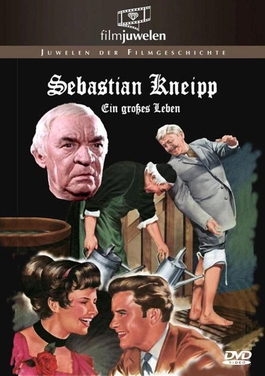
Sebastian Kneipp is a 1958 Austrian historical film directed by Wolfgang Liebeneiner and starring Carl Wery, Paul Hörbiger, and Gerlinde Locker. It is also sometimes known as Wasserdoktor.
Das häßliche Mädchen is a German comedy film made in early 1933, during the transition from the Weimar Republic to Nazi Germany, and premièred in September that year. It was the first or second film directed by Hermann Kosterlitz, who left Germany before the film was completed and later worked in the United States under the name Henry Koster, and the last German film in which Dolly Haas appeared; she also later emigrated to the US. A Nazi-led riot broke out at the première to protest the male lead, Max Hansen, who was supposedly "too Jewish." The film's representation of the "ugly girl" as an outsider has been described as a metaphorical way to explore the outsider existence of Jews.
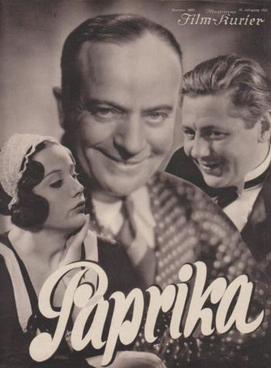
Paprika is a 1932 German comedy film directed by Carl Boese and starring Franciska Gaal, Paul Hörbiger and Paul Heidemann. Made by the German branch of Universal Pictures, it was based on a hit play by Max Reimann and Otto Schwartz. A French-language version and an Italian-language version were released the following year. It is also known by the alternative title of Marriage in Haste. In the US, the film was released almost 2 years later in German on 18 May 1934 in the Yorkville theater under the title Wie man Maenner fesselt (How to charm men).

Maria Ilona is a 1939 German historical drama film directed by Géza von Bolváry and starring Paula Wessely, Willy Birgel, and Paul Hörbiger. The film is set in Austria during the reign of Ferdinand I. It is an adaptation of Oswald Richter-Tersik's novel Ilona Beck.
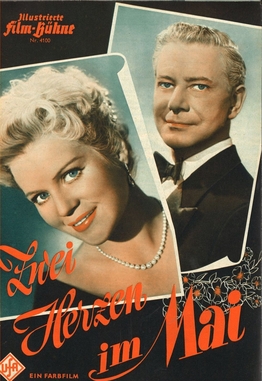
Two Hearts in May is a 1958 West German musical comedy film directed by Géza von Bolváry and starring Dieter Borsche, Kristina Söderbaum, and Walter Giller.

The Young Sinner is a 1960 West German drama film directed by Rudolf Jugert and starring Karin Baal, Vera Tschechowa and Rudolf Prack. It was shot at the Göttingen Studios. The film's sets were designed by the art directors Otto Pischinger and Hertha Hareiter.
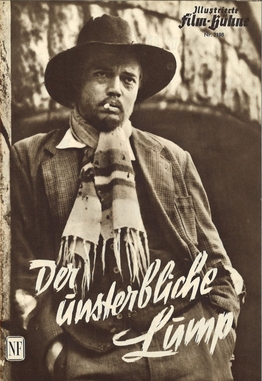
The Immortal Vagabond is a 1953 West German musical drama film directed by Arthur Maria Rabenalt and starring Karlheinz Böhm, Ingrid Stenn, and Heliane Bei. It is a remake of the 1930 film of the same title. It was shot at the Bavaria Studios in Munich and on location in Tyrol in Austria. The film's sets were designed by the art directors Willy Schatz and Felix Smetana.
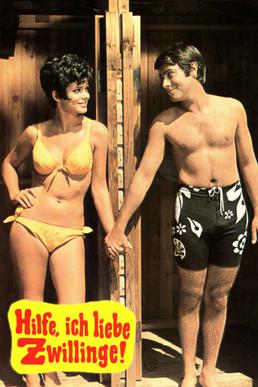
Help, I Love Twins is a 1969 West German comedy film directed by Peter Weck and starring Roy Black, Uschi Glas, and Eddi Arent.
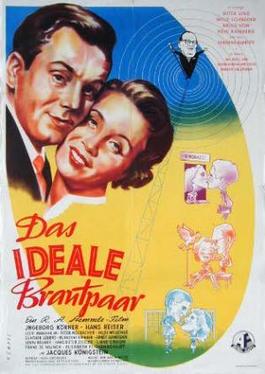
The Perfect Couple is a 1954 West German romantic comedy film directed by Robert A. Stemmle and starring Ingeborg Körner, Hans Reiser, and Peter Mosbacher.

The Prisoner is a 1949 West German historical adventure film directed by Gustav Fröhlich and starring Paul Dahlke, Richard Häussler, and Käthe Dorsch. It is based a novel by the French writer Honoré de Balzac.

The Girl from Flanders is a 1956 romantic drama film directed by Helmut Käutner starring Nicole Berger, Maximilian Schell, and Viktor de Kowa. It is an adaption of the novel Engele von Löwen written by Carl Zuckmayer.

Love Is Just a Fairytale is a 1955 West German musical comedy film directed by Arthur Maria Rabenalt and starring Willy Fritsch, Georges Guétary and Claude Farell.

The Witch is a 1954 West German drama film directed by Gustav Ucicky and starring Anita Björk, Karlheinz Böhm and Attila Hörbiger. It was shot at the Tempelhof Studios in Berlin and on location in Vienna, Rome, Venice, Capri and Styria. The film's sets were designed by the art director Emil Hasler and Walter Kutz.

Tell Me Who You Are is a 1933 German comedy film directed by Georg Jacoby and starring Liane Haid, Viktor de Kowa and Olly Gebauer.

Widower with Five Daughters is a 1957 West German comedy film directed by Erich Engels and starring Heinz Erhardt, Susanne Cramer, and Helmuth Lohner. It was shot at Göttingen Studios, with location shooting at Berlepsch Castle near Witzenhausen. The art directors Dieter Bartels and Paul Markwitz designed the film's sets.

My Ninety Nine Brides is a 1958 West German romantic comedy film directed by Alfred Vohrer and starring Claus Wilcke, Horst Frank and Wera Frydtberg. It was shot at the Tempelhof Studios in Berlin. The film's sets were designed by the art director Karl Weber.

The Confessions of Felix Krull is a 1982 adventure television series based on the novel of the same title by Thomas Mann. It was shot as a co-production between Austria, France and West Germany.
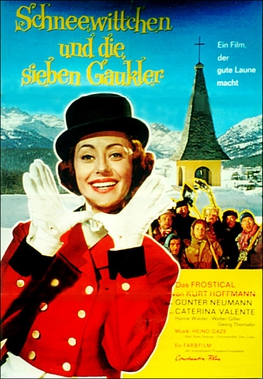
Snow White and the Seven Jugglers is a 1962 Swiss-West German musical comedy film directed by Kurt Hoffmann and starring Caterina Valente, Walter Giller and Georg Thomalla.

Her Highness the Saleswoman is a 1933 German comedy film directed by Karl Hartl and starring Liane Haid, Willi Forst and Paul Kemp. The film is based on the play My Sister and I by Georges Berr and Louis Verneuil. It was shot at the Babelsberg Studios in Potsdam. Location shooting took place around Lake Constance and Lindau in Bavaria. The film's sets were designed by the art director Werner Schlichting. It premiered in Hamburg and first appeared in Berlin at the city's Gloria-Palast. A separate French-language version The Princess's Whim was also produced.



















